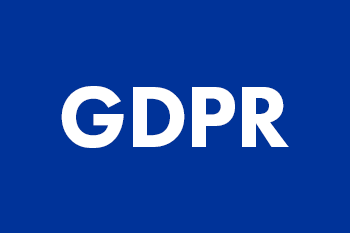In both KS3 & 4, our curriculum is delivered in a fully inclusive manner. Pupils are provided with a balance of individual, group and team activities, some of which are competitive, but the key aim is to get pupils involved in physical exercise and develop healthy lifestyles.
We constantly promote the importance of physical activity and the positive impact it can have on a pupils’ mental health and well-being. Pupils have access to a differentiated curriculum, which includes games, gymnastics, football, netball, dance, trampolining, hockey, athletics, outdoor activities and health–related fitness activities. Through the range of sports on offer, pupils develop teamwork, self-confidence and resilience.
For pupils in Key Stage 4, as well as core PE, there is the opportunity to be study for external accreditation in NCFE Level 1/2 Health and Fitness.
Outside of normal lesson, pupils are encouraged to get involved in extra-curricular clubs.
NCFE HEALTH AND FITNESS LEVEL 1/2
(Modules, Topics)
Year 10 Autumn
Skeletal System
Muscular System
Circulatory System
Year 10 Spring
Respiratory System
Body types (Somatotypes)
Principles of Training
Components of Fitness
Year 10 Summer
Exam revision
Exam
Year 11 Autumn
Health and Fitness
Diet
Recovery and Sleep
Performance Enhancing Drugs
Recreational Drugs
Fitness Testing
Preparing a Training programme
Year 11 Spring
Coursework Preparation
Synoptic project practice
Year 11 Summer
Coursework – 21 GLH
Key Stage 3
In Physical Education pupils are assessed through a variety of methods.
Peer assessment in all lessons, where possible.
Self-assessment in lessons where possible.
Summative assessment at the end of unit following: Head, Heart, Hands.
Formative assessment in all lessons by teacher following: Head, Heart, Hands.
Head, Heart, Hands Assessment model:
Head: Knowledge, Understanding, Analysis, Feedback, Responsibility, Rules
Heart: Communication, Leadership, Respect, Resilience, Effort, Confidence
Hands: Physical Ability, Fitness Levels, Competitive, Technique, Tactics, Problem Solving
Key Stage 4
Pupils are assessed on their behaviour and effort levels throughout Year 10 and 11. As pupils work through their chosen practical activities’ pupils receive feedback from their teachers and peer assessment is a key focus of the majority of PE lessons.
Careers in Physical Education/Sport
There are many careers within sport development, Instructing and in the Leisure and Health sectors.
Sport development
Sports development is promoting a particular sport, or sport in general for employers, including local authorities and national sports governing bodies. Your role could be to increase the numbers of people involved in sport or to raise standards of performance within it. You may have to deal with funding and sponsorship and organise promotional events or community schemes, to encourage participation in sports. There is a lot of contact with the general public and with people from other sporting bodies, or from local and national government.
Entry to sports development work can be very competitive. Many people have relevant degrees and coaching qualifications.
Instructing and refereeing
If you have a particular interest or strength in a specific sport you may choose to complete a training or coaching course within it. All National Governing Bodies (NGBs) offer coaching and refereeing programmes. Once qualified, you could look for work within your chosen sport.
All primary school teachers can teach physical education (PE) to children. State secondary schools employ specialist teachers of PE. You need a real interest in teaching, as schools will often expect you to be able to teach another subject in addition to PE. Experienced PE teachers can become teacher-trainers or subject advisers.
To work as a teacher you need an approved degree or postgraduate qualification. There are also employment-based routes into teaching.
Leisure industry
The leisure industry is one of the fastest growing industries. Many large leisure centres are run by local authorities, or by organisations contracted to run the centre on their behalf. There are also an increasing number of privately-owned health and fitness studios, outdoor pursuits centres, leisure facilities attached to hotels and holiday centres, and sports clubs – such as for golf or tennis. Some large employers provide company sports and leisure clubs.
An assistant may be responsible for:
- looking after equipment and demonstrating how to use it safely
- overseeing activities
- assisting at classes and fitness sessions
- dealing with bookings and enquiries.
Supervisory and management staff:
- plan sports and exercise programmes and do long-term planning
- organise publicity and arrange special events
- deal with rotas, recruitment and training
- take responsibility for budgets and finances
- are responsible for health and safety
- oversee bar/catering facilities and building/equipment maintenance.
Managers may be involved in day-to-day operations, as well as having responsibility for staffing and general management.
Health
If you have study an examination qualification in Physical Education you may choose to complete a health based qualification either in college/6th Form or at University. Examples of careers in the health industry include:
- Sports Massage Therapist
- Physiotherapist
- Podiatrist
- Dietician
- Sport Scientist
- Sports Psychologist
Further career opportunities in Sport include:
Manufacturing, wholesaling, and retailing of all sorts of sports equipment and clothing, lifeguard, Greenkeeping and grounds staff, sports journalists, broadcasters and photographers, Sports agents, Events management, Armed Forces or police.
With the majority of the above careers further training and qualifications are required. With the sports, leisure and armed services it is important to remember that a certain level of fitness and skill may be required to pursue them as a career.
